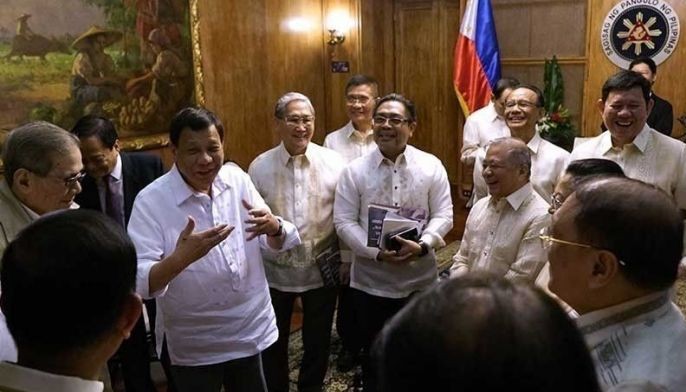Economic managers warn of federalism rush's fiscal risks
MANILA, Philippines — Two of the Philippines’ economic managers on Tuesday warned against rushing into the planned shift to a federal form of government, which some say could have negative implications for the country’s public finances.
In hundreds of hours of speeches, President Rodrigo Duterte has boldly declared the Philippines must overhaul the 1987 Constitution and shift to a federal system of government to address the country's widening wealth gap and empower regional governments.
Duterte last month approved the draft federal constitution crafted by a consultative committee or Con-Com. The charter reviewers, whom Duterte appointed, proposed that federated regions be given a share of not less than 50 percent of all national taxes.
But in a recent television interview, Socioeconomic Planning Secretary Ernesto Pernia stressed that while federalism could unlock economic benefits, it could also spell disaster for some regions not prepared for such a transition and “wreak havoc” on the country’s balance sheet.
At a Senate hearing, Pernia made it clear that his remarks were his “personal opinion.”
“I spoke rather liberally as an academic... As I said, I do not object. I was just pointing out that the rush is not good. It’s not good to rush into this,” Pernia said.
For his part, Finance Secretary Carlos Dominguez III told senators that while the Duterte administration's economic team has no official position yet regarding federalism, he agrees with Pernia on the potential fiscal risks of the proposed change in form of government.
“If we don’t manage this correctly, this can end up to be a fiscal nightmare. So I think the legislature, in its wisdom, can sort those issues out,” Dominguez said. “I’m happy that it is being discussed now because the original draft, for me, from a fiscal point of view leaves much to be desired.”
The finance chief then recalled his recent meeting with members of Con-Com where he highlighted his concerns on the draft federal charter from a fiscal point-of-view.
“Number one, during a meeting with some members of the commission, I asked them, ‘who is going to pay for the national debt? Who is going to pay for the military? Who is going to pay for the [Department of Foreign Affairs] and the central bank? I mean if it needs additional capital, who is going to put it up?’ And their response was, ‘the sharing with the local governments or the states will be after those expenses,’” he said.
“But I said: ‘You know, when I read the draft, it doesn’t say so there. It just says 50 percent.’ So I said: ‘You know, that’s what you say but how come it’s not in the draft?’” he added.
Last month, international debt watcher Moody’s Investors Service cautioned that federalism could present downside risks to the country's institutional and fiscal profile.
“The shift to federalism would also likely incur an expansion in the aggregate size of the government and, hence, public expenditure,” Moody’s said.
“At the same time, there may be a gap between the national and local levels of government with respect to their ability to manage fiscal resources, posing a risk to the improved fiscal discipline that has characterized national government finances over the past decade,” it added.
- Latest
- Trending






























